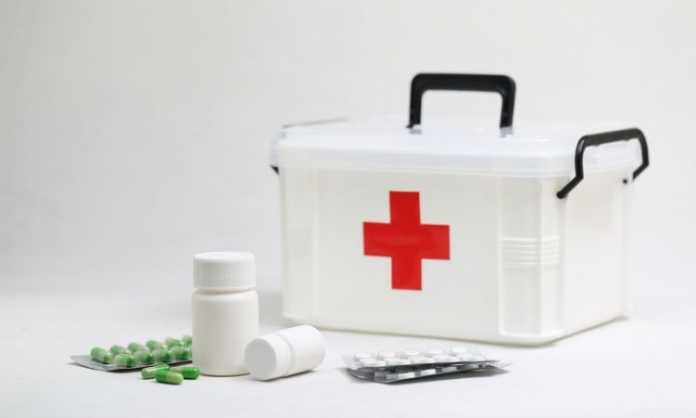Becoming an emergency medical technician or EMT is definitely not for the faint of heart. It requires a lot of commitment, passion and courage to work in the front lines of medical emergency services. This career path can also bring you a lot of satisfaction, knowing that you are able to help people and make a difference in their lives. Besides, there are plenty of job opportunities in this field as long as you are willing to put in a lot of hard work.
People always associate EMTs with ambulances for obvious reasons. Wherever there’s an ambulance, you’ll also find an EMT nearby. But EMTs are not limited to riding in an ambulance; there are many other settings where you can find them. They can become instructors, work with the police, firefighters or in the military field.
There’s nothing stopping an EMT to take a step further and become a paramedic or a doctor. So becoming a certified EMT can open the door to many opportunities in the medical field.
Sometimes EMTs can feel the need to change directions and follow a different career path. This can happen for a number of reasons:
- Remuneration – EMTs receive a relatively low pay, considering the long hours they work. Depending on experience and location, the compensation could be satisfactory, but for those who want to earn a bigger paycheck, transitioning to a different career might be a good option.
- Long shifts – EMTs are famous for working long shifts that can last up to 24 hours. While some might find this lifestyle exciting, others would be happier working from nine to five.
- Risks – working in the emergency field also comes with significant risks. There are many things that could go wrong in an emergency situation and EMTs are exposed to all types of hazards. The adrenaline rush can be a bonus for fresh EMTs, but in time all the excitement can have a serious impact on their physical and mental health.
- Burnout – the long hours and the prolonged stress they experience can lead EMTs to the brink of burnout. That’s a good enough reason to pursue a different career.

Different career paths EMTs can pursue
Even though you are ready to say goodbye to your EMT career it doesn’t mean that your EMT certification won’t help you in your future profession. On the contrary, the skills you have acquired as an EMT can open many doors career wise. Here are a few jobs that EMTs could find interesting:
Emergency Room Technician
Emergency room technician is quite a similar role to EMT as it involves working in the first lines of medical emergency services. The difference is made by the working environment. EMTs jump in the ambulance and go to the patient’s location, while ER Techs tend to patients in the emergency room, so it’s basically a change of scenery.
Medical equipment repairer
EMTs know the importance of checking the medical equipment before every shift. There’s no guarantee that medical supplies are in perfect condition unless you inspect them regularly. The job of a Medical Equipment Repairer involves visiting medical facilities, checking and repairing medical equipment pieces. For fixing less complicated pieces of equipment such as beds and wheelchairs, an EMT certificate will suffice as EMTs are already familiar with them.
Physician’s Assistant
In order to become a Physician’s Assistant you’ll have to undergo further training, as there’s a lot of additional knowledge you have to gain. But an EMT certificate comes in handy as it gives you an advantage when enrolling in training. Physician’s Assistants are important members of medical teams, working with doctors and nurses to help diagnose and treat patients, so the role comes with a great deal of responsibility.
Surgical Technologist
As the name implies a Surgical Technologist works alongside surgeons, but he’s not involved in any way in performing surgeries. The job involves medical equipment and instruments used in the surgical environment. A surgical Technologist is responsible for sterilizing medical equipment, sanitizing the operating room or managing medical supplies post-surgery.
Health Information Technician
A job as a Health Information Technician takes EMTs away from the first line of defense and places them in an office setting. Health Information Technicians don’t have to deal with patients directly. Their job is to manage patients’ information, from patients’ medical history to medical expenses. It’s quite a jump from being a first responder, so this position might suit those who are looking for a more peaceful working environment.
Contract medic
Some organizations prefer to build their own EMS teams rather than relying on first responders to arrive in case of an emergency. The possibilities here are endless. Depending on each company’s field of activity, EMTs can work in all sorts of places. Amusement parks, cruise ships or hotels are just a few locations where their presence is required.
Emergency dispatcher
EMTs are all too familiar with the job responsibilities of an emergency dispatcher. A dispatcher answers 911 calls from people who find themselves in an emergency situation and then sends the appropriate services to the caller’s location. Dispatchers must have great communication skills to gather the necessary data from those who need help and then communicate the information to first responders.
Industrial medic
EMTs working in industrial units are called industrial medics. Factories in various industries are required to have an emergency responder at their premises in case of emergency. Factory work poses various risks, depending on the industry, and that’s why the presence of a medic is so important.
The role of an industrial medic is the same as that of an EMT, the only difference being that industrial medics only have to care for the health and safety of the company’s workers.
Veterinary technician
EMTs who want to change their job might as well change the patients. Animals also need to be treated and veterinary technicians do their part by helping vets care for animals that are ill or injured. Job responsibilities include administering medicine, assisting vets during surgery or even diagnosing furry patients.



























